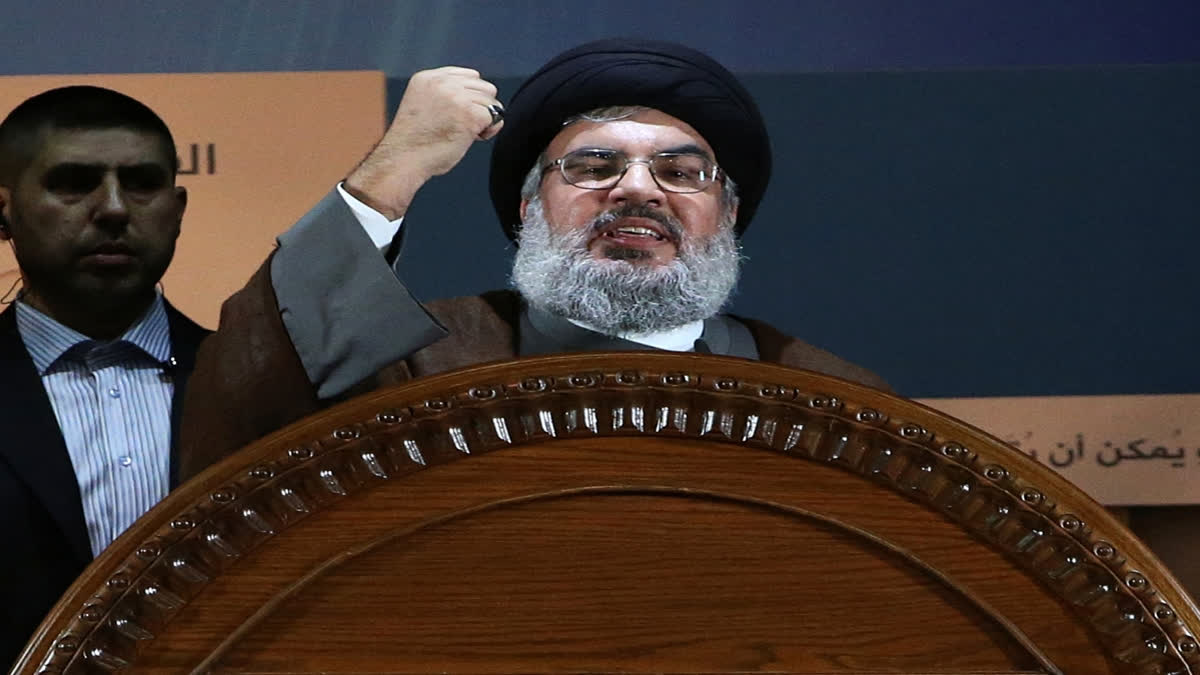New Delhi: With Hezbollah confirming on Saturday that its top leader Hassan Nasrallah was killed during an Israeli attack on the Iran-backed militant group’s headquarters in Beirut, Lebanon, the question that arises is who will succeed him now.
According to Iran’s Mehr News Agency, Hezbollah confirmed on Saturday afternoon that its secretary-general Sayyed Hassan Nasrallah was martyred in the Israeli strike.
"The Resistance group offered condolences to Imam Mahdi (AS), the Leader of the Islamic Revolution Ayatollah Seyyed Ali Khamenei, the Resistance combatants, and the believers," the report stated. "Hezbollah reaffirmed that it will continue its battle against the enemy, support Gaza and Palestine, and defend Lebanon."
Born into a Shia family in the suburbs of Beirut in 1960, Nasrallah finished his education in Tyre, when he briefly joined the Amal Movement, a Lebanese political party and former militia affiliated mainly with the Shia community of Lebanon, and afterward at a Shia seminary in Baalbek.
He later studied and taught at an Amal school. Nasrallah joined Hezbollah, which was formed to fight the 1982 Israeli invasion of Lebanon. After a brief period of religious studies in Iran, Nasrallah returned to Lebanon and became Hezbollah's leader after his predecessor, Abbas al-Musawi, was assassinated by an Israeli airstrike in 1992.
Now, with Nasrallah also facing the same fate, speculations are rife about who is likely going to take over the leadership of Hezbollah. According to an expert on West Asia, who spoke to ETV on the condition of anonymity, the death of Nasrallah is a huge victory for Israel and a big loss for Iran.
“Normally, in such cases, whoever leads the funeral of a top leader usually becomes the successor," the source explained. This brings into focus Naim Qassem, a Shia Lebanese cleric and politician, who is the second-in-command of Hezbollah with the title of deputy secretary-general.
Qassem is the most immediate and obvious choice to succeed Nasrallah. He has served as Hezbollah's deputy secretary-general since 1991 and is Nasrallah's right-hand man. Qassem is an ideologue and an experienced political leader, with a strong grasp of Hezbollah's internal workings. He has played a critical role in shaping the group's political and ideological trajectory over the years.
Qassem was one of the founders of the Lebanese Muslim Students Union which was established in the 1970s. He joined the Amal movement when it was headed by Imam Musa Sadr. Qassem was the head of the Islamic Religious Education Association from 1974 to 1988. He also served as the advisor for al Mustafa schools. Then Qassem participated in the foundation activities of Hezbollah and was appointed deputy secretary-general of Hezbollah in 1992.
Qassem's long tenure as Nasrallah's deputy ensures he is deeply embedded in the organisation's command structure. He has been involved in key decisions, both militarily and politically.
Qassem was recently in the news when he attended the funeral of Ibrahim Aqil, commander-in-chief of Hezbollah's special operations unit, the Redwan Force, who was killed in an Israeli airstrike in Beirut on September 20.
